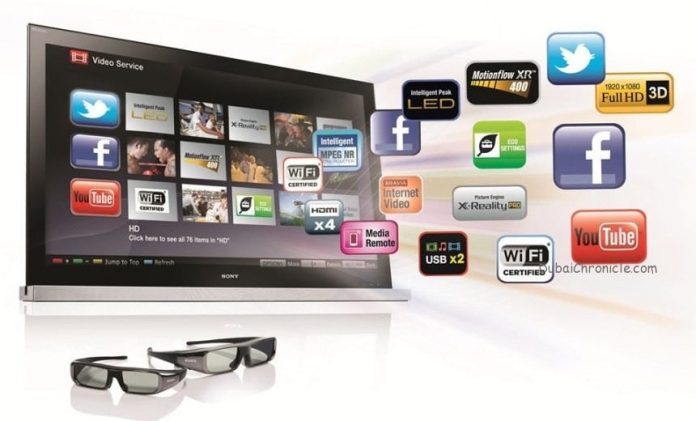
For years, one of the biggest problems of parents was the huge amount of time their kids spend in front of the TV. Since the introduction of television on the mass market, there have been discussions about how TV affects younger minds negatively. Ironically, children have always been the most avid TV fans. However, a new study has found that the trends are finally shifting and children TV time is now shorter than before. The big news is that television seems to be replaced by smart mobile devices.
- Read more: Top 5 Smartphones for the 2013 Holiday Season; Top 5 Tablets for Christmas Gifts in 2013; Top 5 Digital Cameras for Christmas 2013
The study was published and conducted by Common Sense Media. It focused on children aged between 0 and 8. What it found was that, today, kids spend less and less time watching TV. According to the research, this year young children spend 57 minutes in front of the television screen on the average. That is about 9 minutes less compared to 2011. In addition, watching prerecorded programs takes one third of young children’s TV time.
Despite the TV time decrease, many kids still have a device in their room (more than 33%). Interestingly, this practice is more popular among lower-income families. Those, that have higher incomes or a higher level of education, try to keep the television away from their kids’ bedrooms.
Another interesting finding is that children now spend more time watching educational TV programs. According to the study, nearly 60% of kids up to age 8 regularly watch educational television.
The Cause
The survey points that the reason behind the fall of the TV is due to the rise of smart mobile devices. It states that today more and more young kids have access to mobile gadgets and applications. This includes children under 2. Almost 40% of them have used an Internet-connected mobile device in 2013, like a smartphone, tablet or an iPod Touch. That is an 11% jump compared to 2011.
The percentage reaches 72% among kinds aged between 0 and 8. This is two times more compared to two years ago. Also, the duration children spend on smart computer devices has tripled, growing from 5 minutes to 15 minutes a day.
Rich vs. Poor
The study discovered that the gap between higher-income and lower-income families, that own a smart mobile device, is slowing closing. This could be probably explained by the fact that smartphones and tablets are becoming more and more diverse and affordable.
Nevertheless, lower-income households do not use as many mobile applications as higher-income ones. One of the reasons for this is that they often do not have access to high-speed Internet.
Video games are still popular among young children. In 2013, they are estimated to spend an average of 10 minutes a day playing video games. However, this is 4 minutes less compared to 2011. Therefore, smart mobile devices seem to soon take the lead. But is the smart gadget scenario better for kids than television?




































